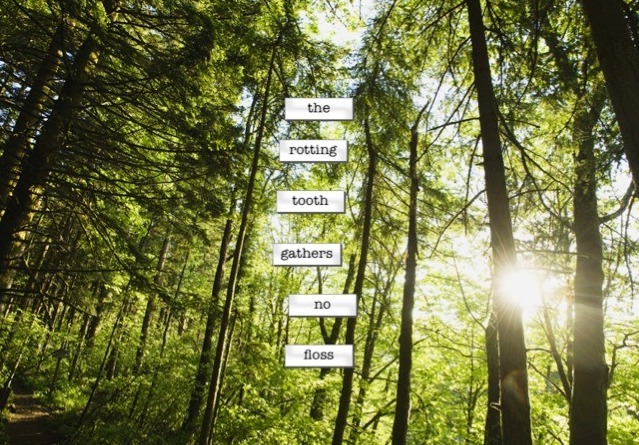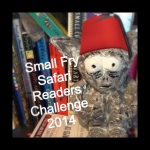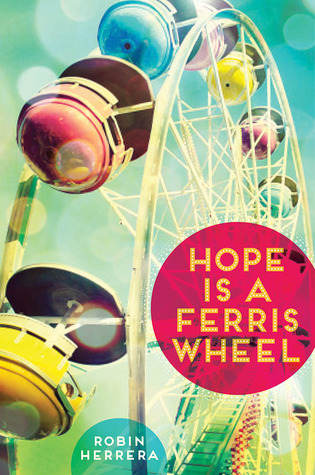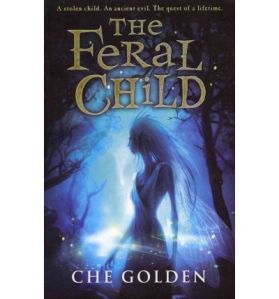Afternoon all! I received a digital copy of Knightley and Son by Rohan Gavin from the publisher via Netgalley in exchange for an honest review – thanks!
Knightley and Son follows the exploits of 13-year-old Darkus “Doc” Knightley, son of well-known, if somewhat eccentric investigator Alan Knightley. When Knightley (senior) wakes up from a four-year-long coma and promptly disappears from his hospital room, at roughly the same time as numerous ordinary citizens simultaneously rob banks while carrying copies of chart-topping self-help book, The Code, Darkus knows something big is going down. After Knightley (senior’s) all important case files are mysteriously stolen, Darkus is promoted to assistant detective, and sets off to assist his father in foiling the machinations of mysterious crime syndicate known as The Combination. Add to the mix a large, Scottish secret agent and Darkus’s hair-dye-happy step-sister Tilly, and the crime world will wish that instead of setting off to do crimey things this morning, it had stayed in bed with the covers over its head.
* you’ve been wishing and hoping that someone would write a version of “The Da Vinci Code” for teens
* you believe that the reason “The Secret” was such a bestseller could be because the authors used some kind of ancient evil to control the minds of those who merely picked it up in mildy interested fashion while browsing at their local bookstore
* you like a good, complicated mystery with lots of twists, turns, codes and puzzles to work out
* you enjoyed J.K. Rowling’s use of accent-based dialogue for every utterance made by Hagrid, and feel the desperate need to read some more accent-based dialogue – lots more – but this time with a Scottish twang.
Keen-eyed readers may have already picked up that I haven’t employed my usual chirpy, cheerful read-it-ifs today, instead opting for a bit of thinly veiled sarcasm. The reason for this is….I really didn’t like this book all that much. Now, I really hate giving out bad press unnecessarily, so allow me to explain.
I was really looking forward to this book. The cover art is awesome (big, BIG book-by-its-cover judge, me), the blurb was interesting, the mystery/crime element appealed greatly given that there aren’t a whole lot of books of that genre getting around middle-grade and YA fiction right at the moment. I think I first heard about this book round about the time I was reviewing Lockwood & Co: The Screaming Staircase, and for some reason I linked the two in my brain. But while Lockwood & Co was an unequivocal five star read, Knightley and Son was just okay.
I felt the execution, particularly with regard to character development, was somewhat lacking. Darkus, at thirteen, is somewhat of a child genius – he has memorised all of his father’s case notes, is able to make accurate deductions about behaviour and people’s movements based on minute details that he observes in the environnent, and he dresses in tweed, like a miniature of his father. Great. But WHY? We receive no explanation as to why or how he got this way, and as the plot unfolded and Darkus was involved in more and more complicated interactions in the investigation, my annoyance at this increased and I found it almost impossible to suspend my disbelief.
In fact, I found pretty much all of the characters in this book to be fairly two-dimensional which distracted me from the story. I couldn’t go along with the more fantastical elements of the plot because I didn’t even believe the ordinary people, doing ordinary things, were authentic. Going hand in hand with the flat characters was the unfolding of the plot in a whole host of pat and convenient ways. Things just seemed to work out too simply for my tastes. I didn’t feel that there were enough major setbacks for the characters to overcome, as solutions to problems seemed to conveniently pop up just when they were needed in ways that didn’t require the characters to struggle particularly hard. Given the complicated nature of the actual crime that was being investigated, once again, things just didn’t ring true.
And that, in the end, is what ruined this book for me.
Now, for you, this may not be a problem. For the average middle-grade or teen reader, in depth character development may not be the first thing they look for in a novel. The fun and intrigue of the code-cracking and the crime-foiling and the mysterious-book-exploring may well be enough to have them clamouring for the next in the series. Unfotunately for me though, I will see the next book in the series, with its no-doubt eye-popping cover art, and will be reminded of the disappoint-ivity that blossomed into great blossoming clouds as I delved deeper into this book. Sigh.
A note though. Please do not allow my pessimistic rantings to dissuade you from picking this book up. My lack-of-fervour for this title may well stem from the long build up of anticipation that occured while I was waiting t0 get my paws on it. If you think the blurb sounds interesting (as indeed, did I) and the cover catches your eye (as indeed, it did mine) I urge you to give it a go and decide for yourself. Perhaps this is all just a ruse so I can keep all the copies with their lovely, lovely covers to myself….*
Aside from all that, it would fit perfectly into category four (a book with someone’s name in the title) of the Small Fry Safari Kid Lit Readers Challenge…just something to think about.
Until next time,
Bruce
* It’s not a ruse. I genuinely found this book annoying, sadly.




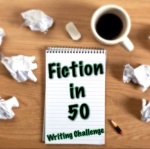

 For more information or to find out prompts for the next few challenges, click on this attractive button!
For more information or to find out prompts for the next few challenges, click on this attractive button!